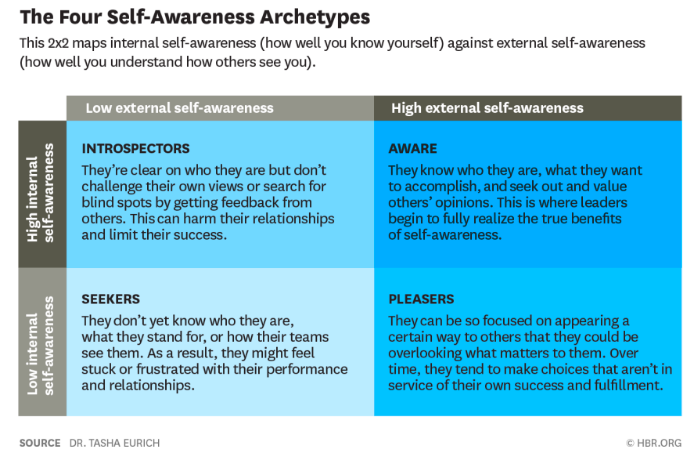Pros and Cons: Fiedler’s Contingency Model of Leadership (with examples)
Fiedler’s Contingency Model of Leadership evaluates the effectiveness of a leader in an organization.
According to this model, a leader’s effectiveness is based on the situation. The framework argues that there is no one best style of leadership and the organization should match a particular leadership style to a particular situation.
How should you apply Fiedler’s Contingency Model of Leadership to your organization?
To answer this question, I have prepared three examples.
Fiedler’s Contingency Model of Leadership example #1 – Advertising Agency Manager

Let’s imagine you are the founder of a major advertising agency. The agency manages a portfolio of several global clients and has won a number of advertising awards. But things have not been going well for the past three years and the company is going through a restructuring and realignment process.
You are looking to replace the current CEO with a new leader. Who would be the right person for the job? What type of leader should be more suited to lead the team at this particular time?
Before you begin looking for a person to hire, analyze the situation according to one of the factors underlining Fiedler’s contingency model: situational favorableness.
Situational favorableness or situational control describes the leader’s ability to control the group situation. More specifically, the degree to which the leader can influence the behaviour of group members in order to face the current situation.
There are three factors that determine the favourableness of a situation: Leader-Member Relations, Task Structure and Leader Position Power.
Leader-Member Relations refers to the degree of mutual trust, respect and confidence between the leader and the subordinates.
Leader Position Power refers to the amount of power the leader has over the group, i.e. to which extent the leader can reward or punish the group’s members.
Task Structure refers to the extent to which group tasks are clear and structured.
Since you are looking to bring a new person to lead the team, this person is at a disadvantage: the team doesn’t know him/her, and trust, respect and confidence are earned.
So the new leader has poor leader-member relations but has a strong position power since he controls resources and can reward or reprimand the team’s members.
Working in an advertising agency requires a high level of creativity therefore the team’s members perform tasks that are not structured. So the agency environment has a low task structure.
According to Fiedler’s Contingency Model of Leadership, the most effective leader in this particular situation is high-LPC or relationship-oriented. This type of leader will focus on building relationships with the team members first.
When the relationship between the leader and team members is based on confidence and trust, everyone’s work is easier. Find what is a high-LPC leader.
Fiedler’s Contingency Model of Leadership example #2 – Sportswear Shop Manager

Let’s assume you are the owner of a sportswear brick-and-mortar shop. Business is picking up and you are planning to expand to three new locations. So you need a manager for your main shop. You are looking to hire externally. He or she will lead a team of five employees. Every team member knows what they need to do to run the shop. Given the situation, the person you will hire will have strong position power, poor leader-member relations in a structured task environment.
According to Fiedler’s Contingency Model of Leadership, the leader most likely to succeed in influencing the team is high-LPC. Even in situations where tasks are structured, the leader still needs to build a good relationship with team members.
Fiedler’s Contingency Model of Leadership example #3 – App Development Team Leader

You are the CEO of a large software corporation. Over the last five years, the company has added a new service to its portfolio: application development. The offering has proved highly successful with the number of clients rising constantly every year. The application development department is comprised of four small teams lead by a team leader. One of the leaders has left the corporation and the position is vacant. Because team members have built tight relationships with one another, you have decided against hiring externally. Instead, you will promote one of the team’s members to team leader.
In this particular situation, what type of leader should be the most effective?
Because the person you promote is coming from within the team, he or she will have good leader-member relations, but a weak position power since they don’t control the resources. Also, the environment is highly technical so the tasks are structured.
According to Fiedler’s Contingency Model of Leadership, the most effective leader is low-LPC or task-oriented. The promoted person already has the support of his team members, so to be a successful leader, he or she needs to be task-oriented.
Pros and Cons of Fiedler’s Contingency Model of Leadership
The premise of Fiedler’s Contingency Model of Leadership is that a person’s leadership style is determined by the person’s life experiences and cannot be changed. That was the main approach to leadership in the sixties. Things have changed since then.
Extensive research conducted in the following decades showed that people, though influenced by previous experiences, are not defined or limited by them.
People can move past their previous experiences. Leaders can adapt their leadership style to different situations. They can shift between styles (and there are 12 of them!) to better suit the situation at hand.
In his 1995 bestseller Emotional Intelligence, renowned behaviour scientist and psychologist Daniel Goleman shows that leaders with high emotional intelligence create more connected and motivated teams who are become more invested in the success of the company.
In 2006, when Mindset: The New Psychology of Success was first published, the fixed mindset myth of You either have it or you don’t was busted. According to the author, researcher and psychologist Carol Dweck, having a growth mindset leads to a better and more successful life.
People’s set of skills and abilities can change and grow. Task-oriented leaders can learn to grow and nurture relationships.
Another criticism of Fiedler’s Contingency Model of Leadership is that it fosters a high rate of top executives turnover. The model suggests that whenever the situation requires, the current leader is simply replaced with a more suitable leader. In this respect, the model is a limiting lens through which one can assess a person’s abilities.
Fiedler’s Contingency Model of Leadership is one of the first models which measures the effectiveness of a group’s performance based on the leadership style of their leader.
The model also promotes the idea of analyzing a situation according to three relevant factors: leader-member relations, task structure and leader position power. And then simply match the most adequate leader to the situation.
Another advantage of this model is that it provides a tool for self-assessment. The Least-Preferred Co-Worker (LPC) Scale is a questionnaire that helps the leader to understand their specific leadership style: task-oriented or relationship-oriented. The leader looking to grow their leadership skills can use the LPC scale as a starting point.
Join the Conversation
We’d love to hear what you have to say.
Get in touch with us on our LinkedIn Page, Facebook Page, Twitter or TikTok.
Is empathy a must-have value for a leader?
No one cares how much you know until they know how much you care.
Theodore Roosevelt, former President of the USA
Is empathy a value we are born with? Do we develop empathy if we see other empathetic people and the way they behave with us?
Or maybe it’s the opposite- we become empathetic when we don’t see empathy in our entourage?
I believe we develop empathy from an early age. If you observe children play, it wouldn’t take long before you spot the empathetic one. If one child is crying, the empathetic one will go up to them and ask what’s wrong, will give them their toy or a hug to make them feel better.

How is it with grownups? Is empathy valued in a team or in the values of a leader?
I always appreciated people who are there for you when you need them. It could be just a few words, a hug or a look that gives you the feeling you are not alone.
There have been so many moments this kind of behaviour actually made me go on, helped me to be more confident and have hope for the better.
Empathy was part of my leadership style. And even when someone missed a deadline, I made sure I was the first to know and managed the situation before it was too late.
Empathy builds trust. People don’t hide their mistakes, they become more collaborative and even more productive.
Empathy is seeing with the eyes of another, listening with the ears of another and feeling with the heart of another.
Alfred Adler, renowned psychotherapist
During my career, I have seen three types of empathy with different reactions to it:
1. Empathy at the right time, in a needed amount.
This is when someone really needs to be listened to and comforted for five minutes. Afterwards, you ask them how they’re doing only once in a while. This is very much appreciated by most people.
2. Empathy out of debt.
When someone was empathetic with you, and you feel the need to return the favour, even though it is not in your nature. If it’s not fake, it could be ok. It still might be perceived unnatural if you are not usually having an empathetic behaviour and it’s better to remain authentic (see my article Standing out, yet being authentic, is it possible?).
3. Empathy overdose.
When you are empathetic with everyone, all the time, even when it’s not needed. It can be annoying and perceived as fake or close to flattery.

An empathetic leader is a leader sought by many employees. At the same time, there are opinions that empathetic leaders are spoiling their employees too much and cannot be demanding, thus cannot bring results.
I would say it’s totally wrong. Based on my experience, my team and I had the best results when we had a relationship based on trust and empathy.
Certainly, some people bring better results under pressure and have different needs in order to achieve the business’s goals. But I never heard that empathy was an obstacle for getting better results.
On the contrary. I think people don’t need to be afraid of their manager in order to show respect and get the job done.
There is still one thing that needs to be solved. What should be done when empathetic leaders have big teams, who are always having their doors open, listen to everyone, and try to help.
At the end of the day, they don’t have enough time to do anything else besides that.
There are options:
- If by now this approach has brought great results and the involvement of the team, leaders should delegate the rest of their responsibilities and keep supporting their team emotionally.
- Create middle-level management, so they can focus on business also.
- Have several hours per week of opened doors is enough.
- Coach their team to not be so dependent (see my article How coaching your team makes you a better leader)
And the list goes on.
Learning to stand in somebody else’s shoes, to see through their eyes, that’s how peace begins. And it’s up to you to make that happen. Empathy is a quality of character that can change the world.
Barack Obama, former President of the USA
If you are not naturally an empathetic person, it could be difficult to show that characteristic without giving an impression of being fake.
Still, it is worthwhile to try. You will see that there will be a big difference in relationships, work environment, and results overall.
There is a need for more empathetic leaders.
Join the Conversation
We’d love to hear what you have to say.
Get in touch with us on our LinkedIn Group, Facebook Group or Twitter.
How Coaching Your Team Makes You A Better Leader
Do you want to become a better leader? Read on to learn how coaching helped Stela Toderascu become a better leader for her team.
The Leader as a Coach
The day you become a manager, besides not having leadership training or a proper introduction to your new role, you also face a shock when you need to coordinate, inspire and develop a team of people who should completely trust you as their new leader.
It’s not a given that a brilliant specialist becomes a great leader. In the leadership position, it is more about the EQ than the IQ, and that makes a big difference.
Before you are a leader success is all about growing yourself. When you become a leader, success is all about growing others.
Jack Welch
Like many leaders, I had the opportunity to go through leadership training only several months after having been appointed department manager. You know that look in the eyes of your team when you get back from training and you start implementing the things you’ve just learnt. You can almost hear them say “ok, she went to another training and now she will try new things on us” 🙂

Leadership through coaching can be discouraging
Coaching-facilitated leadership can sometimes be discouraging. At the same time if you feel those new things can make positive changes, don’t hesitate to use what you’ve learnt.
[bctt tweet=”Stela Toderascu: Coaching brings out the best in people, saves time and drives long term results by creating a learning organization.” username=”brand_minds”]
In order to avoid awkwardness, just be sincere with your team and tell them what you are planning on doing with that info. Let them know how it will help each team member, and that you would be happy if they would be open to trying those new things, keeping the door open for any type of feedback. I really believe that being sincere is the most important thing when we talk about bringing the team on the same page.
The growth and development of people is the highest calling of leadership.
Harvey S. Firestone
A few months into my new managerial role, when I felt confident regarding my functional knowledge, the skill I was really proud of was that I could quickly find a solution for any type of problem. Also, when asking me for advice, each member of my team would get at least one solution in a very short period of time.
I was really proud of this skill until the moment I realized that what I was doing was totally wrong. Even if things moved faster and I felt empowered, it was not helping my team to think, develop and take the next step.
How coaching made me a better leader for my team
After new training, this time on how coaching can improve my leadership skills, I understood how important it was to involve team members in the solution-finding process and in reaching a final decision. It’s only in this case that they can learn, grow, feel engaged and accountable.
Of course, it was a big change for my team when instead of giving solutions I began asking them open questions. Nevertheless, progress became visible quite rapidly.
The biggest benefit for the team was the fact that they would develop new competencies all by themselves achieving autonomy and ownership in a short period of time.
Coaching brings out the best in people, saves time and drives long term results by creating a learning organization.
It was after implementing a coaching leadership style that I could easily identify my successors or the true talents that could become team leaders or get new roles in the company in a short period of time.

5 barriers to leadership through coaching
Leadership through coaching is not as easy as it sounds. I identified the following 5 barriers:
- When the relationship between manager and employee lacks trust;
- The personal style of the manager;
- When the employee doesn’t help the coaching process;
- The manager’s “ego”;
- Manager’s constant need for control.
In order to have a functional coaching relationship at work the manager should be a good active listener, should constantly give feedback, and ask open questions.
A manager with good coaching skills will always respect the differences between people and be confident in what he is doing by showing his confidence in coaching.
Another important factor of successful leadership through coaching is giving up full control and refraining from giving solutions even if they come to your mind every time an employee is telling you about an issue. In light of the above, some leaders also need coaching .
What is the recipe for coaching-facilitated leadership?
Set goals, promote discovery, perform active listening and encourage the employee to get to a minimum one solution and a plan to achieve that particular goal by asking open powerful questions.
Don’t forget to let people grow based on their own potential and don’t make them a copy of you.
Stela Toderascu
If you are curious about your leadership style you can take this 5-minute quiz.
Join the Conversation
We’d love to hear what you have to say.
Get in touch with us on Facebook Group and Twitter.
How Mindfulness Can Help You Become a Better Leader
If you are looking to better yourself as a leader, mindfulness is vital. Read on to discover how mindfulness can support your journey to becoming a great leader.
What is mindfulness?
Mindfulness is a state of consciousness consisting of awareness and attention.
Dr Matthew Lippincott
Self-awareness is a skill that you can develop which has a positive impact on 90% of your results. It is the most critical skill for leaders to develop because it affects every aspect of leadership. And still, there are very few leaders who intentionally train and improve on their self-awareness on a daily basis.
In her 2018 self-awareness study, Dr Tasha Eurich found that only 10%-15% of the respondents are actually self-aware.
Why is it so hard for leaders (and anyone else for that matter) to be self-aware?
Because breaking old habits and developing new ones is very challenging.
Mindfulness is looking in the mirror and having an objective, third-person awareness of our own minds and bodies.
By definition, mindfulness training is self-awareness training, it is a systematic way of improving self-awareness.
The latest research in the field of neuroscience shows that mindfulness changes the function of the brain and its physical structure in ways that help us to be more self-aware.
We don’t need anything outside of ourselves to be happy.
Matt Tenney, Mindfulness speaker and author
Mindfulness is a trainable skill
Mindfulness is a trainable skill. You can train your mind to be happy regardless of what happens to you. It’s about giving up your own short-term self-interest so that you can help other people.
Leadership is about creating a safety zone for your employees to thrive and develop so your organization can thrive and develop.
But how can you create safety for your people if you are not able to bring safety to your mind?

How mindfulness can help you become a better leader – 4 benefits
Here are four important benefits of developing high levels of mindfulness as leaders:
1. Improving your executive decisions
As a leader, you may be prompted to make important decisions every day, decisions which affect your employees’ lives, their productivity and results.
No leader intends to make poor decisions. As a matter of fact, experts found that leaders don’t make bad decisions because they lack knowledge. They make bad decisions because of cognitive bias.
Cognitive bias means a way of thinking which causes a rational person to make an irrational or bad decision.
Mindfulness allows you to become aware of your thoughts and take an objective approach: you can take your thoughts into account if they are productive or let go of them if they are negative or toxic. This helps you make better decisions.
2. Making the other person feel like a million bucks
Have you ever talked to a person who was not paying attention to you, looking around the room or staring at you with a blank look upon their face? Or worse, taking their smartphone and browsing on the internet.
It’s not only rude, but it’s also hurtful. It makes you feel like you don’t matter to that person and he/she doesn’t care about you.
Have you experienced the other way around? Have you ever talked to a leader who gave you their full attention, listened to you intently, asking clarifying questions?
It makes you feel like you matter and you are worthy. It’s uplifting and inspiring. You feel like you could follow that person to the end of the world and help him achieve his dream. It’s very powerful and it is what leadership should feel like.
Such a level of attention and commitment can only be achieved through mindfulness. It means being present at the moment in a non-judgemental way.
3. Empathy
Improving your empathy is important if you are a leader.
It means being open and hearing what your employees need to thrive and how you can help them get it. This way you are setting the required environment for your employees to be productive and bring in positive results. It’s what makes for good leadership.
4. Personal growth
Are you having toxic thoughts?
Is your mind constantly driving you towards your past?
Do you feel compelled to pursue perfection?
If your answer is Yes then you have just taken the first step on the path to mindfulness. Being aware of your thoughts, negative or positive means you have acquired objectivity, therefore, you are now in a position to address your thoughts and change your frame of mind.
It’s about taking control of your mind and not allowing your thoughts to distract you.
What comes next is personal growth and development.
Join the Conversation
We’d love to hear what you have to say.
Get in touch with us on Facebook Group and Twitter.
Become a better leader through self-awareness – 2018 study
What is self-awareness?
Self-awareness is understanding your own self. It means having a really good understanding of your emotions, as well as your strengths, limitations, attitudes, values and motives.
What does self-awareness have to do with leadership?
Part of being self-aware is knowing what emotions or feelings drive your behaviours. The moment you realise what triggers your behaviours you begin to understand about others’ actions and behaviours.
A 2013 analysis performed by Korn / Ferry Institute found that self-awareness appears to correlate with overall company financial performance. The companies with the greater percentage of self-aware employees consistently outperformed those with a lower percentage.
You are not working with machines, you are working with people.
As a leader you need to be aware of the emotions driving your team members. Surprisingly (or not!) being blind to the human factor was one of the reasons which contributed to Nokia’s demise from being the world’s best mobile phone company (read Why did Nokia fail?).
Building healthy relationships with employees is the leader’s most important goal. In our previous article we talked about what you need to do to achieve this goal.
Self-awareness in leadership – 4-year research
Dr. Tasha Eurich is an organizational psychologist and executive coach, with a 15-year professional experience witnessing the power of self-awareness in leadership.
For the past four years, together with her team of researchers, Dr. Eurich has been conducting a large-scale scientific study of self-awareness. The study consisted of 10 separate investigations with nearly 5,000 participants. The study’s objective was to examine what self-awareness really was, why leaders needed it, and how could leaders increase it. She will be publishing her results soon. Until then, she turned to Harvard Business Review to talk about the most important findings of her research.
Here are the 3 most important conclusions of the self-awareness study as detailed by Dr. Eurich:
- There Are Two Types of Self-Awareness
- Experience and Power Hinder Self-Awareness
- Introspection Doesn’t Always Improve Self-Awareness
1. There are two types of self-awareness: Internal self-awareness – External self-awareness
Self-awareness refers to the following subjects of interest:
- Values;
- Passions;
- Aspirations;
- Fit with your environment;
- Thoughts;
- Feelings;
- Behaviors;
- Strengths;
- Weaknesses;
- Impact on others.
Dr. Eurich has discovered two categories of self-awareness: internal and external.
The internal self-awareness is about how clearly we see the subjects listed above.
We’ve found that internal self-awareness is associated with higher job and relationship satisfaction, personal and social control, and happiness; it is negatively related to anxiety, stress, and depression.
Dr. Tasha Eurich
The external self-awareness is about how others view us in relation to them.
For leaders who see themselves as their employees do, their employees tend to have a better relationship with them, feel more satisfied with them, and see them as more effective in general.
Dr. Tasha Eurich
The researchers assumed that a leader who is high on internal self-awareness would be high on external self-awareness as well. The results proved them wrong: there is virtually no relationship between them.
Dr. Eurich and her team identified four leadership archetypes, each with a different set of opportunities to improve:
- The Introspectors;
- The Seekers;
- The Aware;
- The Pleasers.

Here is what Dr. Eurich recommends:
- Don’t fall into the trap of valuing internal self-awareness over external self-awareness or the other way around;
- You need to actively work on both of them: seeing yourself clearly and getting feedback to understand how others see you.
Are you curious to discover how self-aware you are?
Dr. Eurich developed a 5-minute quiz to help you learn more about how you. Follow the instructions here.
2. Experience and Power Hinder Self-Awareness
Dr. Eurich found a surprising discrepancy between believing to be self-aware and actually being self-aware.
Even though most people believe they are self-aware, only 10-15% of the people we studied actually fit the criteria.
How do researchers explain this finding?
The more power a leader holds, the more likely they are to overestimate their skills and abilities.
This happens because senior leaders have fewer people above them who can provide candid feedback. And also because the more power a leader wields, the less comfortable people will be to give them constructive feedback, for fear it will hurt their careers. These leaders have less willingness to listen to feedback – they think they know more than their employees.
How to prevent this from happening to you?
Dr. Eurich found that people who improved their external self-awareness did so by seeking out feedback from loving critics — that is, people who have their best interests in mind and are willing to tell them the truth.
3. Introspection Doesn’t Always Improve Self-Awareness
The problem with introspection – you’re not doing it correctly!
Introspection is the process of examining the causes of our own thoughts, feelings, and behaviors. One can assume introspection leads to self-awareness. It is a correct assumption only if the introspection is done correctly. But most people are doing it wrong.
Seeking the reasons behind a particular reaction or behaviour must be an activity conducted with objectivity. Unfortunately the combination of previous life events and a low self-esteem or self-worth may drive us to the wrong conclusions.
Instead of allowing a negative inner critic from answering the introspecting questions, Dr. Eurich recommends replacing “Why” with “What”. Her research found that highly self-aware people asked themselves “why” less than 150 times, but asked themselves “what” more than 1000 times.
So instead of asking Why did Jane (your employee) gave me a negative feedback?, you should be asking yourself What are the steps I need to take in the future to do a better job?
“What” questions help us stay objective, future-focused, and empowered to act on our new insights.
Conclusions
To become a better leader through self-awareness you need to do the following:
- Focus on building both internal and external self-awareness;
- Seek honest feedback from loving critics;
- Ask what instead of why.
How to lead without a title with Robin Sharma
Robin Sharma is one of the best leadership experts in the world and was a speaker at BRAND MINDS 2018.
BRAND MINDS is The Central and European Business Summit taking place in Bucharest, Romania.
Even though positions are important for the good running of an organization, Robin Sharma believes more in the new model of leadership (leadership 2.0), that is all about every single stakeholder showing leadership in the work they do.
Leadership is no longer about positions, but about passion. It’s no longer about the image, but the impact.
This is really all about distributed leadership.
Every single person who works within a business, for example, owns the responsibility of showing leadership at their craft.
Moreover, according to Robin Sharma, in a business world without titles, there are 4 important tactics one should think about and use:
- If you can’t lead yourself, you can’t lead others. We have no business leading others into greatness if our own personal lives are a train-wreck. Being successful in the game of life precedes great leadership. Face whatever personal issues you’ve been avoiding head on and clean up on all fronts.
2. Never make anyone feel as if there isn’t room in the lifeboat. No matter the mistake, no matter what mile a person is at on their road to mastery, always be ready and willing to throw a lifeline – lend a hand, offer insight, donate your time, run out for coffee. The winners understand that strengthening capacity at every level, in every person, is the way to win.
3. Watch Invictus. Clint Eastwood’s excellent and entertaining reminder of great leadership. Morgan Freeman performs as Nelson Mandela. The film teaches us how to eloquently execute astonishing acts of forgiveness, compassion and moving upward when circumstances and people hold the potential to yank you into victimhood.
4. Stay Strong “secure your oxygen mask first before assisting others.” Do you know where your oxygen comes from? Routine challenging exercise, healthy eating habits, sleeping deeply, and doing what makes me feel alive and excited is my oxygen. It’s what keeps me strong.
Refuse the lifestyle, the habits and the circumstances that weaken you. Great leaders don’t just own their full potential on the floor or in the field; they claim their potential in all domains of their life. You can’t be great in one arena and mediocre in another.
The 90 seconds rule: Act on a good idea or great opportunity within 90 seconds. Before the voice of fear begins to take over.
A Formula For Success: A vision that moves you + Constant innovation + Daily action.
More on the Manifesto one can read here.
Are you a #worldchanger?
Come to BRAND MINDS 2020!
Here are our first confirmed speakers; we will be announcing more speakers in the coming months so stay tuned!
Malcolm Gladwell, Martin Lindstrom and Michio Kaku

Meet Joe Escobedo, One of Singapore’s Brand Minds
Recognized as one of the “Top 20 Content Marketers” worldwide and awarded the “Most Influential Global Marketing Leader” at the World Marketing Congress, Joe has helped countless organizations and executives transform from relative unknowns to superheroes online. He has also created and led successful digital marketing, branding and PR campaigns for both startups and Fortune 500 firms. He is a contributor for both Forbes and the HuffPost, as well as an award-winning speaker. His articles, interviews and talks have been read or heard by nearly one million people.
What is the significance of Joe Escobedo “The Brand Builder” and what is the story behind it?
“The Brand Builder” is a moniker given to me by my colleagues when we were trying to create ‘superhero’ names for the team.
You worked with companies from U.S., China and Singapore, which market did you like the most and why so?
The safe answer would be Singapore, but my five years in the gauntlet known as China made me what I am today. It taught me humility and the importance of guanxi (relationships).
Name one situation that made you want to quit and change your career.
I want to learn something everyday so there were times in my career where I felt like I wasn’t learning anything new or pushing myself hard enough. It’s during those times that I’ve transitioned to a completely new field or market. Sometimes I’ve failed miserably, but I learned from each experience and have grown from it.
Name one situation that made you want to go forward.
I’m driven when people tell me I can’t do something. I’ve been told that more times than I can count throughout my career. During those times, I think in my head, “hold on a second and watch this!”
What do you think are the most difficult challenges marketeers have to face in Asian markets nowadays?
Taking a long-term view. Too often, global headquarters look to the regional office in Asia and say, “You’re our growth engine now so you should be growing at a double-digit rate.” The problem with that is that it forces marketers to look only at the month ahead, rather than what’s going to rise up and disrupt their industry next year.
Investment matters. If you would invest in one particular business field nowadays. What would that be?
If I were looking for some quick cash, I’d say anything A.I. related. But I generally play the long game so I’d invest in things people always need, like food and toilet paper.
If you could change something about Singapore’s marketing community to improve it in any way what would that be?
I’d encourage the Community to take risks and invest more in digital. An ad plastered over the MRT may look great but what’s the return on your investment?
What made you settle down in Singapore?
The short answer: love. I followed my wife who received a job offer before I did.
Meet Joe Escobedo, The Man behind the suit
Name one good habit that helps you deal with your active life.
Reading to my daughter, because in that moment, I’m not Joe “The Brand Builder.” I’m whichever character I’m reading in the book.
Name one bad habit you can’t quit.
Speed walking. I tend to walk like I’m always 15 minutes late to a meeting.
If you could be anything else but a marketing leader, what would you be?
In another life, I would’ve been a film director. I wrote, directed and edited a sketch comedy movie when I was in college. I loved the experience and think I could’ve been a third-rate Christopher Nolan.
You are recognized as “One of the Most Influential Global Marketing Leaders”. What’s your favorite movie of a global marketing leader?
Don’t know if it’s about a global marketing leader per se, but Game of Thrones. After over a decade as a marketer, I see too many similarities between that show and the marketing world, albeit slightly less violent. For instances, strong alliances with the “right” groups can help you get closer to the corporate Iron Throne.
Tell us your favorite book. What’s the best thing you learned from it?
“How To Win Friends & Influence People,” by Dale Carnegie. I’ve read the book at least 10 times and everytime I ‘learn’ something new. My favorite lesson is about putting yourself in the other’s shoes – thinking about what they would want rather than what you’d want them to do.
Name the most important value you have.
Grit. It’s the only reason I’m still around and kickin’ in the professional world. Because even when I get battered to the ground, I claw my way back up. It’s an invaluable trait for any marketer or entrepreneur.
Name the most important value a leader should have.
Empathy. Every boss wants to make the most profit they can but they can only do so with a strong team behind them. And the only way to build and retain a strong team is to empathize with your staff’s situation. If they get demotivated because a client scolded them, then give them a pep talk. If there are unseen circumstances that caused them to miss a deadline then be understanding to their situation.
If you could compare your journey as an entrepreneur with a song, what song would you choose?
“Highway To Hell.” Just kidding! Instead of a song, my journey can be best described by “The Road Not Taken” by Robert Frost. From my move to China when I was 22, my career has been characterized by these lines: “Two roads diverged in a wood, and I— I took the one less traveled by, and that has made all the difference.”
Tell us the funniest experience you had this year related to your work.
Some of the funniest moments during the past year happen behind-the-scenes. For instance, we use to have “Happy Friday” dance parties at my company. And I’m not one to brag but my rendition of “Hotline Bling” by Drake stole the show.
If you would give our readers one advice from your professional experience, what would that advice be?
To quote the great Conan O’Brien, “If you work really hard, and you’re kind, amazing things will happen.” I truly believe that. Because everyone wants to help the hardworking nice guy or gal.
What is your biggest expectation for the Brand Minds ASIA event?
I’m looking forward to seeing Gary V walk on stage to a deafening cheer, unleash some savage knowledge and drop the mic.
8 Things you might not know about Kjell Nordstrom
Kjell Anders Nordström is a Swedish economist, writer and public speaker. Amid the madness and hyperbole surrounding the new economy, Dr. Kjell A. Nordström is a guru of the new world of business. In 2009, Thinkers 50, the global ranking of management gurus, placed him and his partner Jonas Ridderstrale among the list of most influential thinkers. His research and consulting focus is on the areas of corporate strategy, multinational corporations and globalization.
More things about him that you might not know:
1.He was first educated as an engineer and thereafter commenced studies at the Stockholm School of Economics, where he earned a Ph.D. in 1991. Until 2004 he was an Assistant Professor at the Institute of International Business (IIB) at the Stockholm School of Economics. His research and consulting focus is in the areas of strategic management, multinational corporations and globalization. He has served as an advisor/consultant to several large multinationals and to the government of the United Kingdom.
2. He believes that in order to get rid of that human shadow called poverty, we have to make up our minds as to what a good life is. “Technology without ideology and values, does not produce much value. As noted by Charles Handy, the market is not a substitute for responsibility – merely a mechanism for sorting the efficient from the inefficient,” he declared for http://thinkers50.com.
3. Nordstrom also thinks that never before in the history of mankind have we had so many potent tools that potentially enable us to build a better world and companies that are actually fun to work for, but it is up to us to create this future.
4. In his opinion, the role of the leader is to strike a balance between when there should be control and when you should let go. Leadership is very much an art form.
5. His book “Funky Business – Talent Makes Capital Dance” became an international best-seller and has to date been translated into 33 languages. In 2000, both Amazon.co.uk and the webzine Management General rated it as one of the five best business books of the year. Another survey ranked it as the 16th best business book of all time.
6. He has been described as the “enfant terrible of the new world of business”.
7. He is a founder of the Stockholm School of Economics’ most prestigious management program, which attracts the elite of Scandinavian executives.
8. Amusing, Educational, Enthusiastic, Informal, Interactive, Passionate, Story-telling and Thought-provoking. Kjell Nordstrom is one of a new generation of rock star speakers. His dynamic, agile and compelling style is matched by the scale and pace of his ideas.
Top traits that make a female a successful entrepreneur
Even in minority when it comes to their numbers, compared to the men who run their own businesses or are top managers, the women possess a series of qualities that make them very suited for the position and, sometimes, even better, than the men, in some fields of activity.
According to a KPMG study, 83 percent of the female entrepreneurs and business owners surveyed think leadership is the most critical trait for a business founder or CEO to possess, while 82 percent think it’s confidence.
“Building a company – and maintaining its success – takes confidence, determination and the ability to take risks. Women entrepreneurs who are able to take these traits and combine them with a strategic vision for their business will not only capitalize on today’s climate of disruption, but they will be the disruptors themselves,” Lee Anne Sciambra, managing partner of KPMG LLP’s New Orleans office and leader of the Houston Business Unit Private Markets Group, said in a statement, quoted by businessnewsdaily.com.
Other qualities that we believe are important are:
Integrity. One doesn’t need to leave victims in her path to be victorious. You don’t need to step on others to step to the next level. Integrity must be the very core of your character. Always put honor first and live by your convictions. As you gain respect and trust, your company will grow. People seek to do business with those they trust.
Perseverance & persistence. They work hand and hand with the power never to give up, no matter how big are the challenges you are confronted with. Women are used to overcoming obstacles everyday, from mentality to perception ones, and tend in general to have a big inner strength. They know how to use the adversity to their advantage.
Being strong–minded & confident in her power. Strong minded doesn’t mean imply being rude, conceited or destructive. On the contrary, a strong-minded woman displays confidence. According to entrepreneur.com, “when you’re strong minded, you’re empowered, possess a healthy self image and take responsibility for your life. The entrepreneurial spirit, by its very nature, requires us to consider possibilities that most aren’t brave enough to”.
Confidence is essential in winning clients and building a profitable business. A person that shows confidence in herself is reliable and wins people’s respect, earns their trust and gains a solid reputation. As first impressions are always really important is essential to show you possess that skill, especially in new business meetings.
Ambition. This is one skill that no person can deny it’s usually equal to “girl power”. Every good leader is known for being really passionate and ambitious about what he / she is doing and showing day feature each time. As Katy Cowan was writing for theguardian,com,“you have to really want something if you’re going to succeed. And you should never settle for second best. Always strive to push forward. Always aim for the top”.
Courage. One cannot start the path of the entrepreneurial road without having at least a portion of courage on the back. Diving into the unknown, facing all the possible problems and difficulties takes a lot of force of character and power. Not everybody can be an entrepreneur, let alone a successful one.
Being determined and focused. Never lose the sight of your business goal. They should be committed your short- and long-term goals to writing, recording how and when you’ll achieve them. Post your goals in plain sight and review them often. Record the reward when the goal is attained. Remember that you can’t hit a mark you can’t see, and continual success demands a plan.
Hard work. Women are famous for putting a lot of work in everything they do, for being perfectionist, both in the professional and personal life. Success cannot be achieved without sacrifices and a lot of time and energy invested. They know it and are not afraid to show it.
Showing compassion. We are not Robots and thank God for that. Emotions make us who we really are and showing your human side is essential if you aspire to being a leader. Moreover, charity and compassion allow you to make a difference in the lives of others, a quality that is more and more searched for today. A woman with a compassionate heart can achieve a great deal of influence and positive image that will help her business thrive.
The Job of the Future

The future. The perfect job. All of these terms mean different things to different people. What makes us happy may not make somebody else. Forseeing into the future and finding predictable trends is a job that requires lots of research and inspiration, but it will never be 100 percent accurate.
If for some people the perfect job might be travelling and blogging about it, for others may mean sitting in front of a desktop and writing algorithms. If for some the job of the future may be totally related to the new technologies, for others may represent going back to their roots and the nature, following the naturist trend.
For example in Singapore, according to vulcanpost.com, there are three mismatches in today’s society that negatively impacts the employability and job search process for Singaporeans: mismatch of skills, of jobs and of expectations. Due to the lack of publicly available information, job seekers sometimes have a skewed impression of what jobs are up for grabs, and where they can be found. This in turn results in a surplus of jobs in certain industries while other sectors, such as security, suffer from a crippling lack of manpower. According to the Acting Minister of Education, Ong Ye Kung, there will be a job boom in the engineering and tech sectors of more than 30, 000 positions. And that, while at the same time, there are countries where the demand for these people is huge and rising.
Moreover, we have to take in account the fact that some jobs and titles didn’t exist some years ago, leaving the possibility for the same thing to happen in the future. In other words said, nobody knows what new jobs and positions will appear in 20-30 years’ time from now.
What is important to realize is that any job you would forsee for yourself, in order to make sure you do have a future, you must poses a set of skills that will help you navigate through the tough climate and find the right spot for you, even this one may change during the years. In our opinion, those qualities would require someone to:
- Be flexible
- Stay curious
- Be creative
- Be a different type of leader
- Have great communication skills
- Try to expand your boundaries
- Experiment as much as possible
- Know Himself / Herself
- Don’t be afraid to ask
- Build networks
- Keep the ego in check
- Be present and active
- Keep an eye out for everything new



